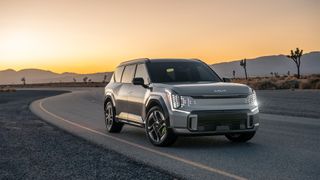
By Chitranshu Mahant An ideal laptop is a perfect balance of performance, portability and budget. If you’re a student who is juggling classes, projects, and extracurriculars, you need a laptop that can do more than just assignments; you need a tech companion that is with you through the thick-and-thin of travel, internet buffering and multi-tasking projects. So, here’s a step-by-step guide that can help you decide on a laptop that fits your academic needs without breaking the bank.
Finalise a Budget Finalising a budget is crucial because it helps you narrow down your choices to what you need, and what you don't. When shopping for a laptop, seek a balance between performance and pricing. This will prevent overspending on services and accessories that won’t be of good use.
Choosing the Right OS The type of operating system you choose has a direct impact on just how useful and productive a laptop will be. Fortunately, some are quite widely supported. For students enrolled in daily academics and requiring a laptop mostly to take notes, surf the web, or access educational apps, there are lightweight Android-based operating systems, designed to be simple yet economical.
They are user-friendly and work quite seamlessly. They may be great for students who do not have a very large budget but still want to find a way through which they can get a practical solution to their needs within the academic setting. Select the Processor and RAM A power-efficient, low-cost processor is an ideal one for students.
It boasts an excellent performance-to-price ratio for everyday tasks such as online research, writing notes, and video calls. Along with a minimum of 4GB of RAM, such a setup can ensure smooth multitasking, whether switching between multiple browser tabs or educational software. Unless you are engaged in resource-intensive activities like editing media or programming, these specifications usually promise reliable day-to-day performance for most students.
Figure Out How Much Storage You Need When it comes to storage, students usually have three choices, SSD (Solid State Drive), HDD (Hard Disk Drive), and EMMC (Embedded MultiMedia Card). SSDs are superior of the lot since they bring fast boot time and quicker access to files. Whereas, HDDs are way too slow in performance even when providing a larger storage area.
In this case, an EMMC storage of about 128GB is an ideal choice for most students. To accommodate more learning materials, from recorded lectures and assignments to various course applications, finding a laptop with an expandable storage capacity option can serve the best. Long Lasting Battery Life It is usually advisable for students to have a laptop that holds a battery shell lasting from 6 to 8 hours minimum.
More so, one that will sit through many hours of lectures and note-making without the need for recharge. That said, one must acknowledge that battery life is dependent on how the laptop will be used and therefore it is advised to read reviews and ratings on the actual battery life before buying the laptop. Portability and Screen Size A laptop's display impacts both the portability and usefulness of the laptop.
A minimum 11-inch laptop is the best choice for students as it is lightweight and portable. However, larger screens like 13-15 inches, with their elevated readability, make it easier and more comfortable to write papers and proactively participate in online lectures. A minimum resolution for a student laptop can start from 1366x768 and go to Full HD (1920x1080).
The higher the resolution, the sharper the display, without undue depletion of the battery. For creative students working with intricate images, higher resolution monitors, like 4K, are certainly fantastic, but they also cost more and use more battery life. Finding the right features and functionality within a laptop is essential for actually leveraging them for your academic success.
Analysing the laptop's performance, battery life, display quality, and portability will undoubtedly help you pick the best one for yourself. High-end features might easily entice, but a student's laptop should be affordable and useful, supporting daily work and education without being overly complicated. (The author is the CEO & Co-Founder, Primebook) Disclaimer: The opinions, beliefs, and views expressed by the various authors and forum participants on this website are personal and do not reflect the opinions, beliefs, and views of ABP Network Pvt.
Ltd..














